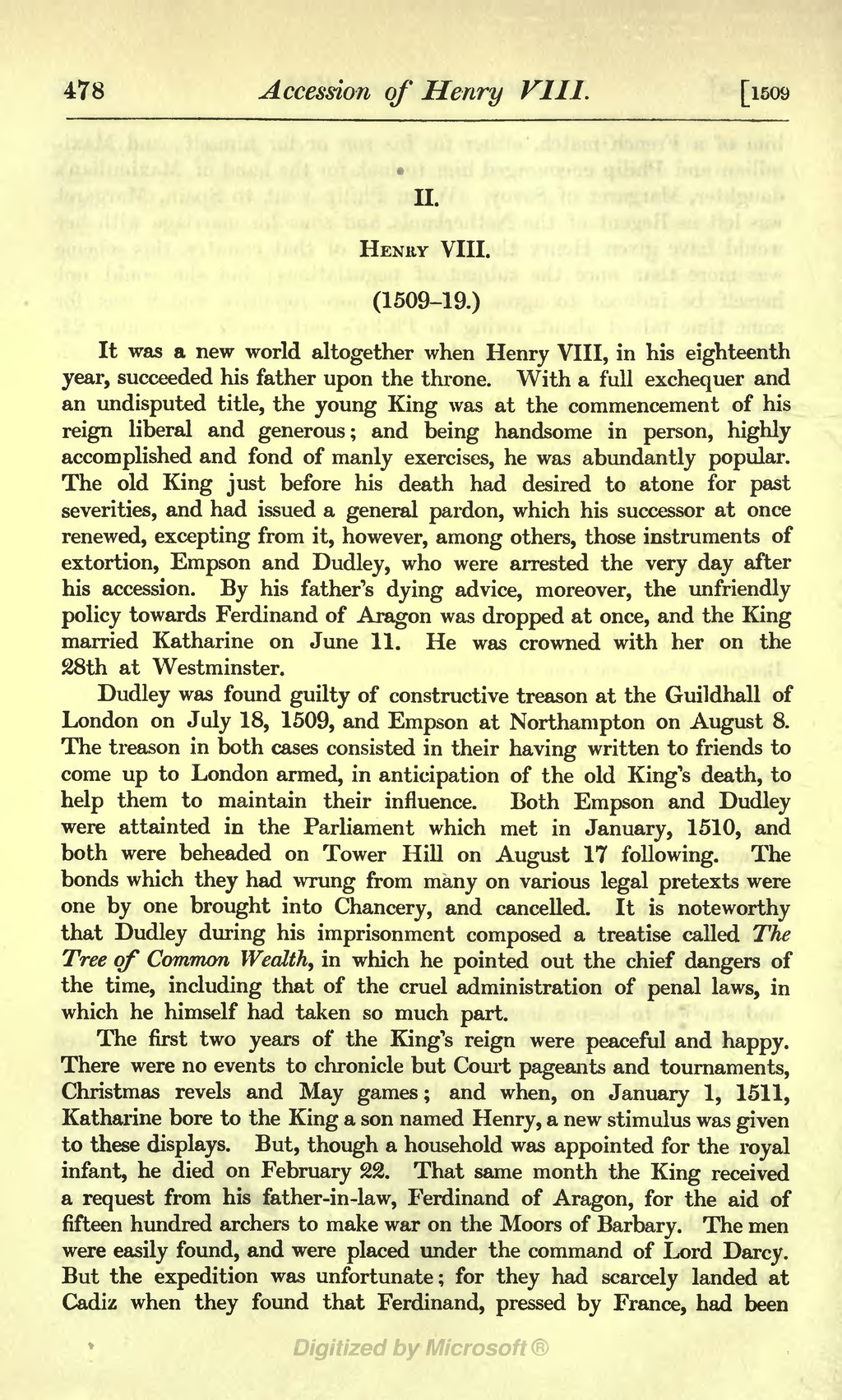VIII. (1509-19.)
It was a new world altogether when Henry VIII, in his eighteenth year, succeeded his father upon the throne. With a full exchequer and an undisputed title, the young King was at the commencement of his reign liberal and generous; and being handsome in person, highly accomplished and fond of manly exercises, he was abundantly popular. The old King just before his death had desired to atone for past severities, and had issued a general pardon, which his successor at o^ce renewed, excepting from it, however, among others, those instruments of extortion, Empson and Dudley, who were arrested the very day after his accession. By his father's dying advice, moreover, the unfriendly policy towards Ferdinand of Aragon was dropped at once, and the King married Katharine on June 11. He was crowned with her on the 28th at Westminster.
Dudley was found guilty of constructive treason at the Guildhall of London on July 18, 1509, and Empson at Northampton on August 8. The treason in both cases consisted in their having written to friends to come up to London armed, in anticipation of the old King's death, to help them to maintain their influence. Both Empson and Dudley were attainted in the Parliament which met in January, 1510, and both were beheaded on Tower Hill on August 17 following. The bonds which they had wrung from many on various legal pretexts were one by one brought into Chancery, and cancelled. It is noteworthy that Dudley during his imprisonment composed a treatise called The Tree of Common Wealth, in which he pointed out the chief dangers of the time, including that of the cruel administration of penal laws, in which he himself had taken so much part.
The first two years of the King's reign were peaceful and happy. There were no events to chronicle but Court pageants and tournaments, Christmas revels and May games; and when, on January 1, 1511, Katharine bore to the King a son named Henry, a new stimulus was given to these displays. But, though a household was appointed for the royal infant, he died on February 22. That same month the King received a request from his father-in-law, Ferdinand of Aragon, for the aid of fifteen hundred archers to make war on the Moors of Barbary. The men were easily found, and were placed under the command of Lord Darcy. But the expedition was unfortunate; for they had scarcely landed at Cadiz when they found that Ferdinand, pressed by France, had been
